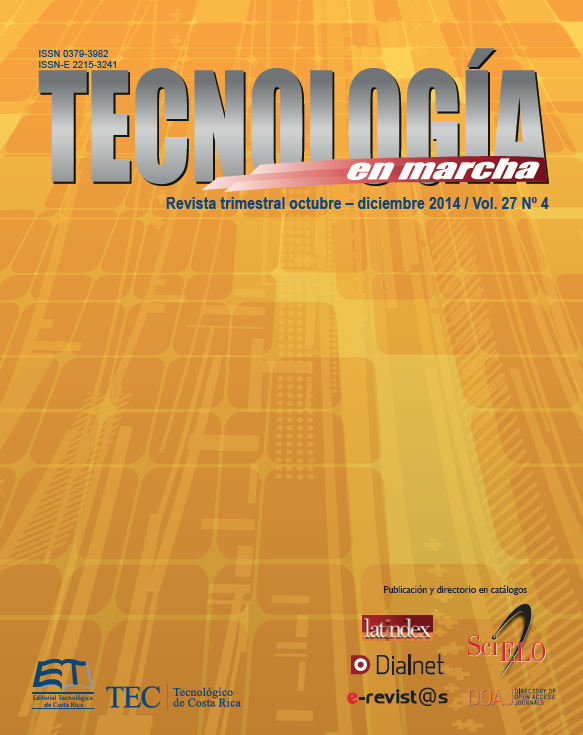Factores determinantes para una acción ambiental positiva de la Gestión Integral de Residuos (GIR) en el cantón de Guácimo, Costa Rica
Contenido principal del artículo
Resumen
En este artículo se presentan los resultados de un estudio sobre los conocimientos, actitudes y barreras en el proceso de implementación de un sistema de gestión integral de residuos sólidos (GIR) en el cantón de Guácimo, Limón, Costa Rica. La municipalidad, como institución rectora del cantón en este tema, no cuenta con un estudio de estas características, de manera que esta investigación será un punto de partida para recabar información de línea base y encaminarse hacia la GIR.
Para alcanzar el objetivo se desarrollaron, validaron y aplicaron dos encuestas, una entre los miembros del Concejo Municipal y viviendas seleccionadas por barrios según sus ingresos económicos, de acuerdo con el reglamento de estudios de composición del país; y otra en locales comerciales escogidos y clasificados por sus actividades según el Código Industrial Internacional Uniforme (CIIU). En todos los casos se aplicaron herramientas estadísticas para la selección de la muestra y comparación de los datos. Una vez capturada la información, se sistematizó y organizó en atributos tales como conocimientos, actitudes, comportamientos, valoraciones y barreras para la GIR en Guácimo.
En la población de Guácimo existe un descontento generalizado por el accionar de las autoridades locales en el tema de la GIR, y a la vez existe un compromiso manifiesto del Concejo Municipal y los demás actores sociales para dirigir el cantón hacia un desarrollo sostenible, que involucre el aprovechamiento, tratamiento y disposición adecuada de los residuos sólidos.
Se espera que la información obtenida en esta investigación le sirva a la Municipalidad de Guácimo para tomar decisiones públicas sostenibles, que involucren a la comunidad en un trabajo colaborativo para que gestionen adecuadamente los residuos sólidos del cantón.
Detalles del artículo
Los autores conservan los derechos de autor y ceden a la revista el derecho de la primera publicación y pueda editarlo, reproducirlo, distribuirlo, exhibirlo y comunicarlo en el país y en el extranjero mediante medios impresos y electrónicos. Asimismo, asumen el compromiso sobre cualquier litigio o reclamación relacionada con derechos de propiedad intelectual, exonerando de responsabilidad a la Editorial Tecnológica de Costa Rica. Además, se establece que los autores pueden realizar otros acuerdos contractuales independientes y adicionales para la distribución no exclusiva de la versión del artículo publicado en esta revista (p. ej., incluirlo en un repositorio institucional o publicarlo en un libro) siempre que indiquen claramente que el trabajo se publicó por primera vez en esta revista.

